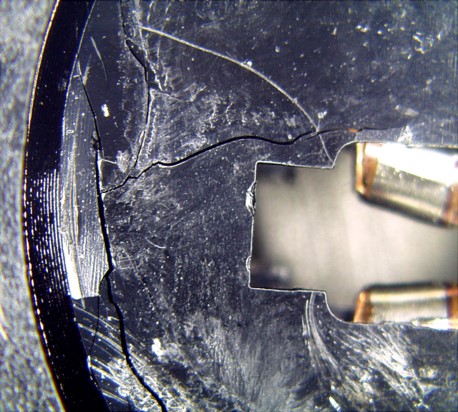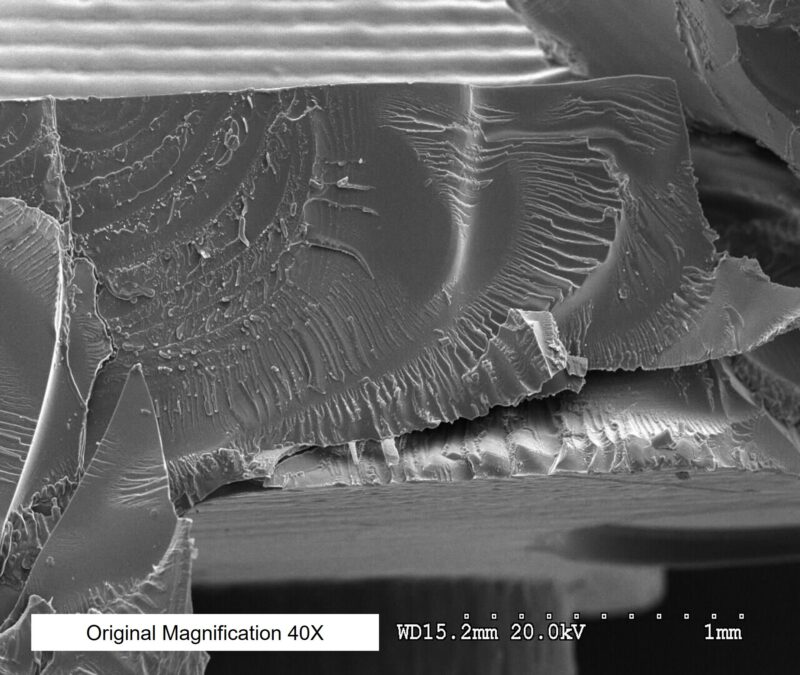This paper was originally published and presented at The Society of Plastics Engineers’ ANTEC in 2005
Four case studies are presented to illustrate environmental stress cracking (ESC) within automotive components. ESC is a very important mode of plastic component failure. The presented cases illustrate how the failure analysis process was used to identify the failure mechanism as well as the primary factors responsible for the failures. The four cases depict representative automotive failures involving varied designs and service conditions.
Environmental stress cracking (ESC) is widely regarded as the leading cause of plastic product failure. A recent study indicated that approximately 25% of plastic component failures are associated with ESC. ESC is a failure mechanism whereby a plastic resin is effected by a chemical agent while simultaneously under tensile loading. It is a solvent-induced failure mode brought about by the synergistic effects of the chemical agent and the mechanical stress.
As part of ESC, there is no chemical attack or molecular degradation. Conversely, the chemical permeates into the molecular structure and interferes with the intermolecular forces binding the polymer chains, causing molecular disentanglement. ESC is a brittle fracture mode and the steps involved in the mechanism include fluid absorption, plasticization, craze initiation, crack growth, and finally fracture. Recent comparisons have illustrated similarities between ESC and creep, sometimes referred to as static fatigue. Creep is the application of static stresses, below the yield point, over an extended period of time. The presence of the ESC agent simply reduces the time to failure, or alternatively, reduces the level of stress required to initiate the failure.
The case studies illustrate how failure analysis identified the nature and cause of the failures. The testing included:
- Microscopic examination
- Scanning electron microscopy (SEM)
- Fourier transform infrared spectroscopy (FTIR)
- Differential scanning calorimetry (DSC)
- Thermogravimetric analysis (TGA)
- Thermomechanical analysis (TMA)
- Melt flow rate (MFR)

A substantial level of crack was apparent on an ignition switch base.

Scanning electron micrograph showing the ignition base fracture surface features characteristic of ESC.
The case studies illustrate the diversity of conditions that can produce ESC failures within automotive components. Factors involved in the cited failures included material substitution/selection, improper handling and cleaning in service, inadequate cleaning of mating metal components, and molecular degradation associated with improper molding conditions. At a minimum, this represents design, processing, and service related elements. Care must be taken throughout the product life cycle to guard against ESC. The cases also showed fracture surface features commonly associated with ESC failure. These features included multiple crack initiation sites; brittle crack features lacking apparent macro or micro ductility; a stepwise failure mechanism, indicated by a primary morphology followed by signs of final overload; and the presence of opened crazes, both as isolated features and in radiating bands. Thus, a formal failure analysis can provide information regarding both the failure mode and cause, which can be used to fix the current problem and to prevent reoccurrence.
